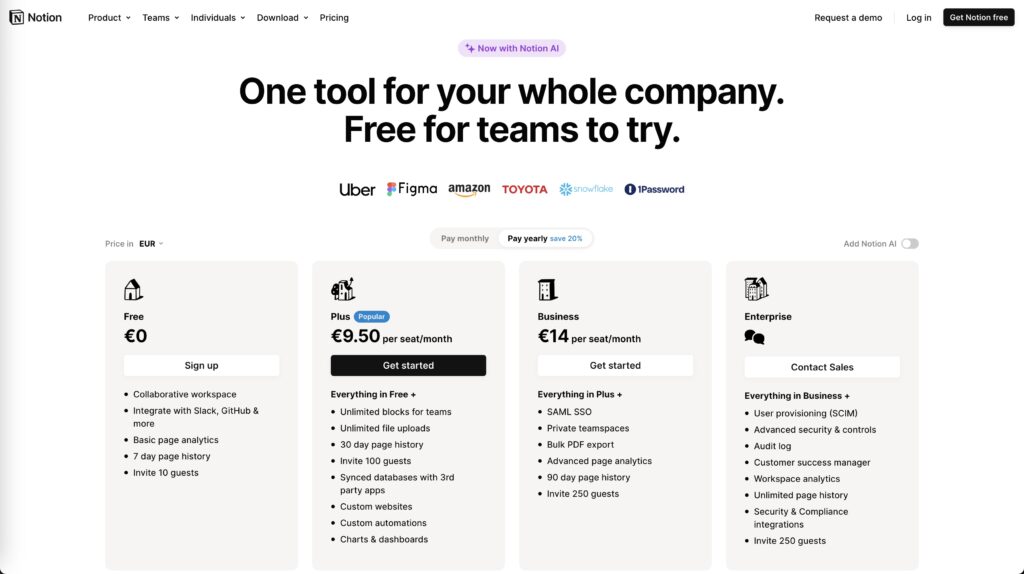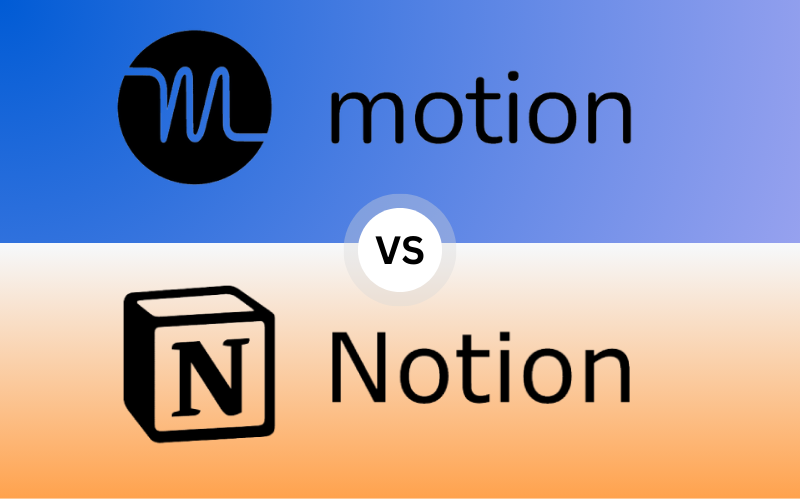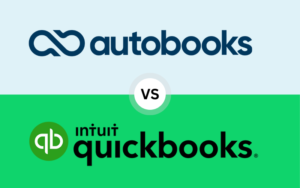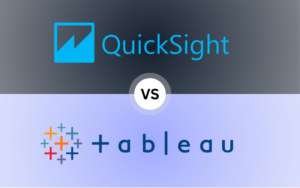“Motion vs Notion – Discover how these productivity tools suit businesses at every stage, from startups to fully operational companies. Dive deep into 5 key differences to help you choose the right productivity platform in 2024.”
TL;DR:
In 2024, Motion and Notion are two of the most popular productivity tools, but they serve different business needs based on your company’s stage of development. Startups and small businesses can benefit from Notion’s flexible organization and free plans, while growing and established businesses may find Motion’s AI-driven scheduling invaluable for time management. For companies that need collaboration and highly customizable work spaces, Notion is unbeatable. However, Motion is ideal for those seeking task automation and structure. In this guide, we break down which tool fits your workflow at every level, from the early days of a startup to a fully operational company. We also offer three alternative software recommendations at the end of the post.
Table of Contents
Why Compare Motion vs Notion in 2024?
The Motion vs Notion debate has become increasingly relevant as both tools evolve and adapt to the changing needs of businesses in 2024. Whether you’re managing a small startup or a large, fully operational enterprise, your choice of productivity tools can make or break your workflow efficiency. Both Motion and Notion bring their own unique strengths to the table, but understanding which tool is best suited for your specific stage of business growth is essential.
In this in-depth guide, we’ll explore how Motion and Notion serve different business needs based on size, complexity, and team dynamics. We’ll look at how each platform performs for startups, growing businesses, and fully operational companies while providing a breakdown of key features, pricing, user experience, and collaboration tools.
By the end of this post, you’ll have a clear understanding of which tool aligns best with your business needs and what alternatives are worth considering if neither Motion nor Notion seems like the perfect fit.

Key Features Breakdown: Motion vs Notion
Before diving into how Motion vs Notion fit different business stages, let’s take a closer look at the key features each tool offers and how they directly impact productivity.
Motion’s Key Features:
- AI-Powered Scheduling: Motion uses artificial intelligence to manage your schedule by automatically prioritizing tasks based on deadlines, importance, and availability. This feature becomes crucial as your team grows and managing time becomes more complex.
- Time Blocking for Focus: One of Motion’s standout features is its ability to block time for tasks, meetings, or deep work, ensuring that you maintain focus without distractions.
- Task Prioritization: Motion helps users by prioritizing tasks for the day based on urgency and importance, which is ideal for team leaders managing multiple projects.
Notion’s Key Features:
- All-in-One Workspace: Notion offers a highly customizable workspace that allows you to store information, manage projects, and document processes all in one place. Its flexibility allows teams to adapt it to their exact workflow needs.
- Templates for Every Use Case: Whether you need to track tasks, manage projects, or build a company wiki, Notion’s extensive template library makes it easy to get started. These templates can be customized further to meet specific team requirements.
- Collaboration Features: Notion enables seamless team collaboration with shared pages, comments, and real-time editing. It’s a strong choice for teams working across departments or remotely.

Startups: Getting Organized and Staying Agile Motion vs Notion
For startups, staying nimble and cost-efficient is critical. The early stages of a business require tools that can help organize ideas, tasks, and projects without overwhelming users with complexity. Startups often lack the manpower to handle a variety of tasks, so the right productivity tool should simplify processes rather than add more layers of management.
Why Startups Should Choose Notion vs Motion:
Notion offers unmatched flexibility for startups. It provides an all-in-one workspace that allows you to manage tasks, track progress, and document company procedures. The free plan is a major advantage for startups working on a budget. Notion’s templates let startups quickly create pages for project management, task tracking, and team collaboration without the need for a steep learning curve. Its versatility means you can scale up your Notion workspace as your business grows without needing to switch platforms.
- Use Case Example:
Imagine a startup with a small team of five. They need a platform that can house everything from task lists to product development documents. With Notion, they can set up separate pages for each department—marketing, sales, development—and link everything together in a central dashboard. This keeps everyone on the same page without having to switch between multiple tools.
Why Startups Might Avoid Motion:
While Motion offers powerful automation, startups may not have the need for advanced AI scheduling in their early days. Motion’s paid plans could be a stretch for companies that don’t yet require complex task management. If your team isn’t dealing with tight deadlines or high volumes of tasks that need constant reshuffling, Motion might be overkill for a small startup.
Verdict for Startups:
If you’re just getting started, Notion will provide you with the flexibility and affordability to get organized and stay agile. You can manage everything from brainstorming ideas to tracking your MVP’s progress—all without breaking the bank.

Growing Businesses: Scaling Your Team and Workflow with Notion vs Motion
As a business begins to scale, the complexities of managing a growing team and expanding workflows become apparent. At this stage, the choice between Motion and Notion becomes more significant as each tool caters to different aspects of a scaling business.
Why Growing Businesses Should Choose Notion:
Growing businesses often require more than just task management—they need a solution that fosters collaboration and information sharing across departments. Notion excels in these areas, providing growing businesses with the ability to create detailed project boards, manage client data, and maintain internal knowledge bases. Notion’s flexibility means that as new team members are added, you can easily onboard them by giving them access to templates and workflows already in place.
- Use Case Example:
Let’s say you’re running a digital marketing agency that’s grown from five to twenty employees. You now need a system that allows for project management across various client accounts, while also storing content strategies, social media plans, and performance reports. With Notion, each client can have their own dedicated workspace where you manage projects, documents, and communications. It’s easy to grant access to team members and clients, ensuring seamless collaboration.

Why Growing Businesses Should Choose Motion:
For businesses scaling their operations, task prioritization and time management become crucial. Motion’s AI-powered scheduling automates time management, helping businesses efficiently allocate their resources. As more employees come on board, managing meetings, deadlines, and individual workloads becomes complex. Motion helps solve this by automatically rescheduling tasks and time-blocking based on priority and availability, allowing teams to stay on top of their growing to-do lists.
- Use Case Example:
If your growing business involves running a customer support department, where scheduling calls, follow-ups, and meetings with customers needs to be automated, Motion becomes a valuable tool. It will prioritize urgent support tickets and allocate time for each team member based on their workload and deadlines.
Verdict for Growing Businesses:
If your business is growing quickly and needs to manage a large volume of tasks and meetings, Motion offers the automation and time-blocking tools that will help you stay on track. On the other hand, if collaboration and managing data across departments is more of a priority, Notion will be your go-to platform.

Fully Operational Businesses: Maximizing Efficiency and Automation with Motion vs Notion
Fully operational businesses have unique needs when it comes to efficiency and workflow automation. These companies typically have multiple departments, each with its own processes, meetings, and tasks. At this level, managing large-scale projects, ensuring cross-departmental collaboration, and automating repetitive tasks become paramount.
Why Fully Operational Businesses Should Choose Motion:
As businesses grow larger, manual scheduling becomes inefficient and time-consuming. Motion’s AI-powered scheduling is a game changer for businesses that need to optimize every minute of their workday. By automating task prioritization and scheduling, Motion helps businesses stay focused on high-impact activities. The ability to block time for meetings, focused work, and even breaks helps ensure that nothing falls through the cracks.
- Use Case Example:
Consider a fully operational software company with multiple teams handling product development, customer support, and marketing. With multiple meetings, sprint planning sessions, and cross-functional tasks to manage, manual scheduling can become chaotic. Motion steps in to automate scheduling and adjust priorities dynamically, freeing up valuable time for managers and team members.

Why Fully Operational Businesses Should Choose Notion:
Fully operational businesses that rely on data management, documentation, and cross-department collaboration will find Notion indispensable. Notion allows for the creation of detailed databases that can store everything from HR documents to customer data. With its seamless integration of tasks, documents, and collaboration tools, Notion ensures that teams can access the information they need when they need it.
- Use Case Example:
A multinational consulting firm might use Notion to manage client data, track projects, and store research documents. Each department can have its own workspace, but everything is connected under one roof. This level of organization and flexibility makes Notion ideal for businesses that need to maintain large amounts of data and collaborate across departments.
Verdict for Fully Operational Businesses:
For companies that need to automate scheduling and task management on a large scale, Motion offers unmatched efficiency. However, if your business thrives on collaboration and requires a robust system for managing large volumes of data, Notion is the better choice.
User Experience: Usability for Teams Motion vs Notion
When comparing Motion and Notion, the user experience can greatly impact how teams adopt and use these tools in their day-to-day operations.
- Motion: The clean, minimal interface of Motion is designed to simplify task scheduling and management. It’s intuitive and easy to use, but the advanced AI features may require a learning curve for teams unfamiliar with automation tools. Once mastered, however, it significantly reduces the manual effort involved in scheduling and task prioritization.
- Notion: Notion’s user experience is incredibly flexible but comes with a steeper learning curve, especially for teams new to the platform. The customization options can be overwhelming at first, but once teams learn how to create pages, databases, and workflows, Notion becomes a powerful tool for managing projects and collaborating effectively.
Pricing: Value for Businesses of All Sizes Motion vs Notion
The pricing of both Motion vs Notion plays a significant role in determining which tool is best for your business. Here’s a detailed breakdown:
Motion’s Pricing:
- Starting Plan: $19/month. This plan includes the core features like AI-powered scheduling, time blocking, and task prioritization.
- Team Plans: Motion’s pricing scales as you add more users, making it more expensive for larger teams. However, the ROI comes from the time saved by automating scheduling and task management.

Notion’s Pricing:
- Free Plan: Notion offers a free plan that’s ideal for personal use or small teams just getting started. It includes the ability to create unlimited pages and use templates.
- Team Plans: $9.50/user/month. Notion’s team plans unlock more advanced collaboration features, additional storage, and administrative tools.

Customization Capabilities: Tailoring Tools for Specific Needs Notion vs Motion
Customization is a crucial factor for many businesses when choosing between Motion vs Notion. Both tools offer different levels of customization, but they cater to distinct needs.
Customization in Notion:
Notion offers extensive customization options, allowing users to create unique workflows tailored to their specific needs. You can customize everything from page layouts to database structures, giving you complete control over how you organize your data. This flexibility makes Notion a go-to tool for businesses with diverse needs, whether you’re managing a sales pipeline, tracking project deliverables, or building a company wiki.
Customization in Motion:
While Motion doesn’t offer the same level of customization in terms of layout and structure, its AI-powered automation allows for customization in how tasks are scheduled and managed. You can set preferences for time blocks, priority levels, and task reminders, allowing the system to automate your scheduling based on your specific needs.
Collaboration: Enhancing Teamwork and Communication
Collaboration is key to any business’s success, and both Motion and Notion offer tools to enhance teamwork.
Collaboration in Notion:
Notion excels in team collaboration, offering real-time editing, comments, and the ability to share documents across teams. It’s a great tool for distributed teams working across different time zones, as everyone can access the same information and collaborate asynchronously. The ability to link pages and create shared databases ensures that everyone is working with the latest data.

Collaboration in Motion:
Motion focuses less on collaboration features and more on individual task management and scheduling. While it’s great for personal productivity and automating tasks, it lacks the depth of team collaboration features that Notion offers. However, Motion still allows team members to share tasks and schedules, ensuring that everyone stays aligned.
Security: Protecting Your Data Motion vs Notion
Data security is a top priority for businesses of all sizes. Both Motion and Notion offer secure environments for storing your data, but their approaches differ slightly.
Motion’s Security:
Motion ensures that all user data is encrypted both in transit and at rest. The platform adheres to industry-standard security protocols, making it a safe choice for businesses handling sensitive information like client data or financial records.
Notion’s Security:
Notion also takes data security seriously, offering encryption at rest and in transit. Additionally, Notion provides enterprise-level security features, such as advanced admin controls, single sign-on (SSO), and audit logs for businesses that need higher levels of security and compliance.
Final Verdict: Motion vs Notion in 2024?
After diving deep into Motion vs Notion, here’s the final verdict based on different business stages:
- Startups:
Notion is the best choice for startups due to its free plan, flexibility, and ability to scale as your business grows. It allows you to stay organized, manage tasks, and document processes without spending money upfront. - Growing Businesses:
As your team expands and your operations become more complex, Motion becomes a valuable tool for automating scheduling and managing tasks. For businesses that prioritize time management and automation, Motion is the clear winner. - Fully Operational Businesses:
Established businesses with multiple departments and complex workflows will benefit from Motion’s AI-powered automation for time management. On the other hand, Notion remains the best choice for companies that need strong collaboration tools and a flexible workspace for managing large amounts of data.
3 Alternatives to Motion and Notion for 2024
If Motion or Notion don’t meet your business needs, here are three excellent alternatives worth considering:
- ClickUp: A robust project management tool that combines task management, goal tracking, and document sharing. ClickUp is highly customizable and integrates with many third-party apps, making it an excellent choice for growing businesses.
- Trello: Trello’s visual, card-based system is perfect for businesses that want a simple, easy-to-use project management tool. It’s especially useful for small teams or departments that need a straightforward way to track tasks.
- Asana: Asana is a task management platform designed for large teams. It offers extensive collaboration features, integrations, and timeline views that help businesses keep track of complex projects.
Conclusion:
Choosing between Motion vs Notion comes down to your business’s specific needs and stage of growth. For startups, Notion is the flexible, cost-effective option. For growing and fully operational businesses, Motion’s AI-powered scheduling can save time and boost efficiency. Ultimately, both tools offer powerful productivity features, and your decision should be based on your team’s workflow, priorities, and budget.




